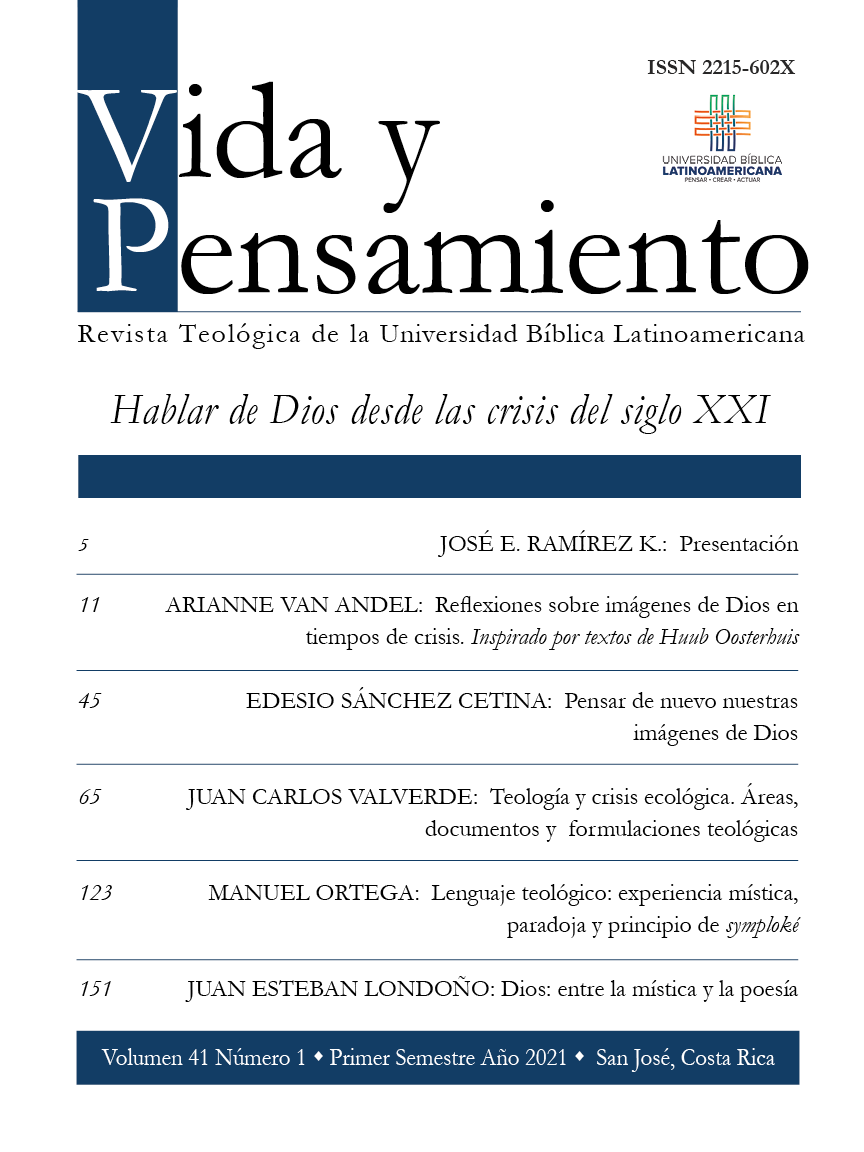Theological language
Mystical experience, paradox and principle of symploké
Abstract
The article exposes the possibilities of a theological language articulated from mysticism and negative theology, and that, in addition, is a meaningful speech of the Divine in the turbulent contemporary world. Starting with the historical opposition between the God of philosophy and the God of religious experience, we then proceed to study the possibilities of a paradoxical and contradictory theology that, in line with the principle of symploké, considers the continuities and discontinuities of the world and of our experience in it. For this, I Take examples from the negative theology of Pseudo Dionisio Areopagita, Juan de la Cruz and Nicolás de Cusa, as well as the Latin American spirituality of liberation, represented by Pedro Casaldáliga, José María Vigil and Gustavo Gutiérrez.
Downloads
Copyright (c) 2021 Vida y Pensamiento

This work is licensed under a Creative Commons Attribution-NonCommercial-ShareAlike 4.0 International License.
The authors who publish in this journal accept the following conditions:
- The authors retain their author rights y grant to the journal the right of first publication, with the work registered with the Creative Commons attribution that allows third parties to use the published material as long as they give appropriate credit to the author and the first publication in this journal.
-
The authors may make other independent contractual agreements for the non-exclusive distribution of the version of the article published in this journal (e.g. include it in an institutional repository or publish it in a book) as long as they clearly indicate that the work was first published in this journal.

